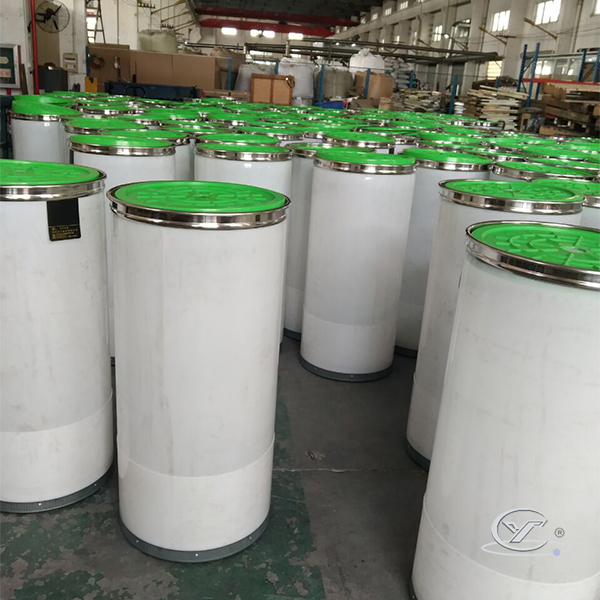To create premium textiles, the textile industry mostly depends on the quality of the yarns used. One of the critical stages in the yarn production process is the use of sliver cans, which play a pivotal role in maintaining yarn quality. These sliver cans are not just simple containers; they are engineered to ensure that the slivers of fiber are transported, stored, and processed with the utmost care, thereby preserving the integrity of the fibers and ensuring better quality yarns.
This article explores how sliver cans contribute to the production of superior yarns in the textile industry.
Understanding Sliver and Sliver Cans
Before diving into the importance of sliver cans, it’s essential to understand what sliver is. A sliver is a long bundle of fiber that is carded or combed and then drawn out into a continuous strand. This stage is crucial as it determines the uniformity and parallel alignment of fibers, which directly affects the quality of the final yarn.
Sliver cans are cylindrical containers used to collect and store slivers during the carding, drawing, and roving processes. These cans come in various sizes and are made from different materials such as plastic, metal, or a combination of both. The design and quality of sliver cans are paramount in ensuring that the sliver remains intact and undisturbed, thus preserving its quality.
The Role of Sliver Cans in Yarn Quality
Maintaining Fiber Alignment and Uniformity
One of the primary functions of sliver cans is to maintain the alignment and uniformity of fibers. During the carding and drawing processes, fibers are aligned parallel to each other to form a continuous strand. Properly designed sliver cans prevent the fibers from tangling or becoming disoriented, which can lead to variations in the yarn thickness and quality. By keeping the fibers aligned, sliver cans ensure that the yarn produced is uniform and consistent.
Reducing Contamination and Damage
Contamination and damage to fibers can significantly affect the quality of the yarn. Sliver cans provide a controlled environment that protects the sliver from external contaminants such as dust, dirt, and other impurities. Additionally, the smooth inner surface of high-quality sliver cans minimizes friction and mechanical damage to the fibers, preserving their natural properties and strength.
Facilitating Smooth Handling and Transport
The handling and transport of sliver are critical stages where fiber quality can be compromised. Sliver cans are designed to facilitate smooth handling and transport within the textile mill. They have qualities like strong structure, smooth rims, and occasionally wheels for easy mobility. These features ensure that the sliver is not subjected to unnecessary stress or distortion during movement, maintaining its quality throughout the production process.
Enhancing Process Efficiency
Efficient processing is crucial for maintaining fiber quality and optimizing production. Sliver cans are made to work perfectly with machines that do carding, drawing, and roving. Their standard dimensions and compatibility with machinery ensure that the sliver is fed into the machines smoothly, without interruptions or delays. This seamless integration enhances process efficiency, reducing the likelihood of fiber damage and ensuring consistent yarn quality.
Ensuring Proper Storage Conditions
Proper storage conditions are vital for maintaining the quality of sliver before it is further processed into yarn. Sliver cans provide a secure storage solution that protects the sliver from environmental factors such as humidity and temperature fluctuations, which can affect fiber properties. By providing a stable storage environment, sliver cans help in preserving the quality of the sliver until it is ready for the next stage of processing.
Innovations in Sliver Can Design
With advancements in technology, sliver cans have also seen significant innovations aimed at further improving yarn quality. Modern sliver cans are designed with features such as anti-static coatings, reinforced rims, and ergonomic handles. Anti-static coatings reduce the buildup of static electricity, which can cause fibers to cling together and lead to processing issues. Reinforced rims enhance the durability of the cans, preventing deformation and ensuring long-term usability. Ergonomic handles make it easier for workers to handle the cans, reducing the risk of accidents and improving overall efficiency.
Furthermore, the use of transparent or translucent materials in sliver can design allows operators to monitor the sliver levels and quality without opening the cans, minimizing contamination risks. The industry’s dedication to enhancing yarn quality and manufacturing efficiency is reflected in these advances.
Conclusion
In the textile business, the quality of the yarns used greatly affects the properties and functionality of the finished cloth. Sliver cans play an indispensable role in ensuring better yarn quality by maintaining fiber alignment, reducing contamination, facilitating smooth handling, enhancing process efficiency, and providing proper storage conditions. With ongoing innovations in their design, sliver cans continue to contribute to the production of high-quality yarns, supporting the textile industry’s goal of delivering superior products to the market.
By understanding and optimizing the use of sliver cans, textile manufacturers can significantly enhance yarn quality, leading to better fabrics and, ultimately, more satisfied customers.

